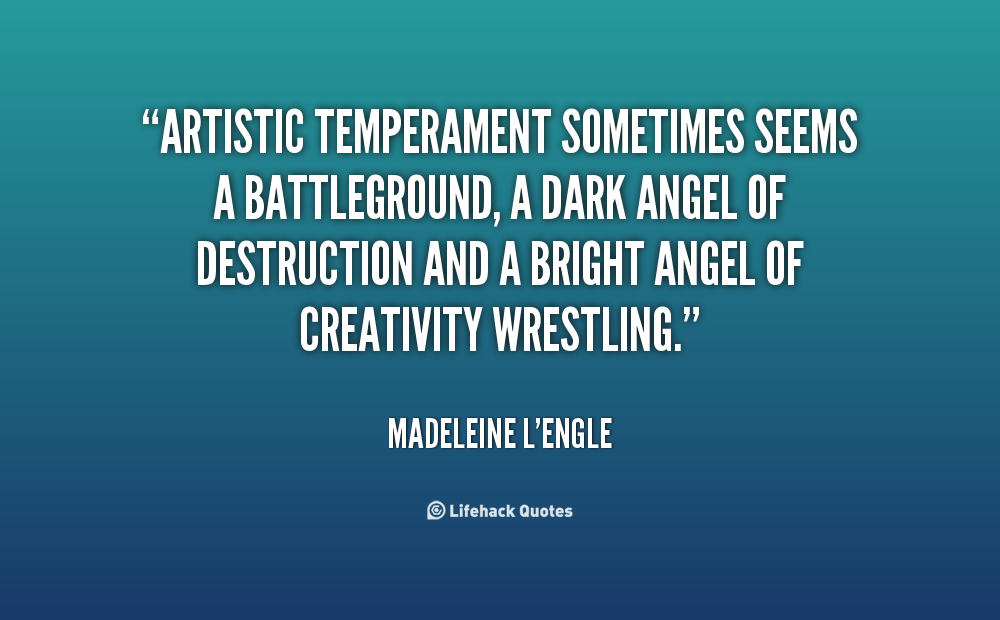Surviving Depression in a Depressing World- Part 2 Mania, Depression and the Creative Mind.

Depression and Creative Minds.
According to British psychiatrists, Dr. Eliot Slater and Sir Martin Roth noted a fascinating observation that Cyclothymia depression is characteristic in writers, artists and musicians and the cycles are testimonial in the ebbs and flows between creative work and periods of cessation during other aspects of their mania or euphoria periods, otherwise masked behind the artistic temperament and inspirational periods.
Cyclothymia and creative thinking are connected as Dr. Ruth Richardson and Dr. Dennis Kiney of Harvard University found that the majority of their manic depressive subjects in their research would experience elevated moods when experiencing creative highs, in contrast the low moods were the unproductive periods. Dr. David Shuldberg found several hypomanic traits contribute to performance on tests measuring creative thinking, he found that creative cognition is similar to hypomanic flights of ideas and other studies found that rhymes and sound associations and writing of poetry increase during mania.
Several aspects of the thought processes of creative individuals and hypomania are the same, these are rapid thinking, divergent thinking, dynamic thought processes, combining ideas and topics to form new perspectives. This perhaps is the gift of those creative individuals that also suffer the lows of depression, where artists and writers are able to tap into imaginative thought and abstract thought and expression with enduring the polarities which at times can be rapid, extreme and take one into the lowest and darkest depths. Though, it seems without this aspect of depression, we would not have the legacy of art, music, writing and poetry that some of the most renowned and famous artists have left behind, perhaps some of the greatest epiphanies and inventions have come from these thought processes.
To name a few writers and artists that suffered from manic depression are Tennessee Williams, Lord Byron, Frédéric Chopin, Dylan Thomas, John Beryman, Yeats, Samuel Taylor Coleridge, Van Gogh, Leo Tolstoy, Emily Dickinson, Robert Lowell, William Styron, Ernest Hemmingway, Edgar Allen Poe, Zelda Fitzgerald, Virginia Wolf, Sylvia Plath, Hunter S. Thompson and Graham Greene.
Many creative people who suffer from manic depression have had histories of alcohol and drug abuse in an attempt to seek some form of solace from these manic states. I come from an academic background in environmental biology though before this, I was at art school and painted in my younger years, inheriting these creative abilities from my mother. I gave up art to pursue a career in environmental science and actually neglecting my creative abilities led me into depressive episodes too, though its hard to define if neglecting being creative itself was the main cause of my depression or if I was just prone to depression because I have a creative mind and nature.
I eventually found that completely neglecting my creative talents has caused me further frustration and misery and it has taken me forty years to figure out that is why when I was younger, at times I'd lean on alcohol as a way to appease the manic stages as well as the lows, and it didn't help growing up in the British culture that normalized copious amounts of binge drinking. However, I don’t recommend giving up creative pursuits if you think you have a tendency towards depression and are creative, as it does negatively affect your true nature if you try to stifle your creativity to fit in or conform or please others.
Many people that live with depression will self-medicate during the manic phases to alleviate the intense restless agitation accompanied by the mania, obviously this can result in alcohol and drug abuse addictions worsening the intense depressive lows of the manic depressive illness. Learning to identify the manic high phases is also helpful as well as perpetually circulating thoughts, heightened irritability, a sense of abandonment, feeling of invincibility, irrational sense of grandiosity, risk taking, compulsive behaviour such as spending or sexual promiscuity, binge drinking, drug taking, bad decision making, the urge to connect desperately with friends or family and constantly calling or emailing them can result in the sufferer having to deal with excruciatingly embarrassment after an episode of mania because most people just perceive you as having a crazy episode, as they lack the understanding of the bigger picture, obsessions and high mental energy are also part of the mania side of depression.
The mania can be managed by channelling that energy into your creative pursuits or starting up an exercise programme instead of searching for adrenaline highs, alcohol, sex or substances as an escape from racing thoughts and agitation. Being able to identify these aspects of mania can help one better manage their own emotions and urges to finding ways to apply it more constructively rather than destructively in ones life. There are other additional holistic practices that you can try out to help better manage these phases which we can look at in later posts.
 Pixabay, by Robert Ziemi
Pixabay, by Robert Ziemi
During the manic phases of depression, a creative artist can produce their best work, this phase is usually ignored by therapists because that is when we are at our most productive and therefore this is not seen as a dysfunction, but an advantage to society. Some individuals that live with cyclothymia, or long term manic depression have adapted their professions and lives so well to it that they don’t necessarily need help.
´´Researchers have only have the capacity to get us into a room and put us through tests that make us look stupid. These are the parts of our brains that function like busted laptops.
What the experts have yet to figure out is how to set up an experiment that can record the birth of a creative thought or take a snapshot of a breakthrough idea. These are the parts of our brains that run like Cray supercomputers. We rule the school. Our minds are literally processing data so fast that we make the type of connections and associations that lead to Eureka Moments. Often at a rate that astounds people who do not share our depression. If there is anything subjective about our thinking, it is only after our brains have delivered the mental goods, when a solution miraculously reveals itself or a revelation floors us.
"Society has benefited enormously from this aspect of depression, from Newtonian physics to the Sistine Chapel. A good case can be made that we would all still be living in caves were it not for our supercomputers. In Darwinian terms, this would explain why depression terrible as it is- is seen as a positive trait worth passing down to the next generation. Like our cognitive deficits, one needs not be in an episode to experience racing thoughts. For this writer, they are constant in my life. Since these thoughts are often running in the background as I am performing other tasks and at speeds usually quicker than a conscious mind can capture, one might call the process subconscious, Ideas simply pop out of the brain. Paradoxically, my brain can run like a super computer and a clapped out laptop at the same time.''- John McMannamy from his book ¨Living Well with Depression and Bi-Polar Disorder¨
Readers should research the long term effects of different medications as some can make an individual feel worse than others and if you are coming off of pills, it’s best to do so gradually through the supervised titration of the medications with the help of a psychiatrist. Take steps to start introducing some lifestyle changes as which I will be posting about in following articles.
Related Articles
Surviving Depression in a Depressing World-Part 1
environmental factors influencing depression
A different Perspective on Depression and The Ecology of Human Consciousness
Thanks for an interesting post. Maybe one day mankind will get to the bottom of this. 😀 😃 😄 😁 😆 I hope you have a WONDERFUL day!
Thank you, igualmente, I have followed your Steemit blog since I am also anartisit and write poetry, I look forward to reading yours.
Nice what kind of posts do you usually like to read and upvote? By the way, thanks for being an inspiring Steemian in general and connecting on here! 🤡 🤠 😏 😒 😞 I hope you have a wonderful day!